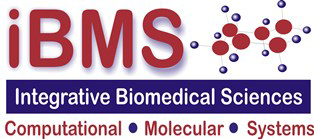BMedSc(Hons) in Medical Biochemistry (IBS4000W)
This is a postgraduate training programme aimed at introducing students to an academic or research career in medical biochemistry, molecular medicine, structural biology, proteomics and genomics for academic, research, professional scientific and service careers in biomedical and biotechnology fields. It is a good entry into a variety of Masters and PhD programmes.
Programme Convenor:
Assoc Prof Virna Leaner
Email: virna.leaner@uct.ac.za
Tel: 021 406 6250
Admission requirements:
A BSc or equivalent degree with a major in any of the biological, biochemical or molecular sciences, or chemistry, or an MBChB degree.
Programme outline:
This programme is aimed at introducing students to an academic or research career in medical biochemistry and molecular medicine/biology in broad terms. It aims to prepare students for relevant Masters and PhD programmes and career directions in professional scientific research and service careers in biomedical and biotechnology fields.
The programme consists of two general modules, four programme modules and a research project. The academic year begins with an intensive seven-week laboratory techniques course, which is a practical module aimed at teaching students basic and more advanced molecular and biochemical techniques, applied bioinformatics, as well as applied statistics. Students also attend a scientific communication module that runs throughout the academic year and trains them in scientific writing and comprehension. In addition, students need to attend four programme modules. Each module covers a specific field and generally runs over a three-week period. Students are assessed during each module and there is an examination at the end of the first semester. Three modules should be in the Medical Biochemistry programme module list and one more module from any of the following honours programmes: Applied Anatomy/Biological Anthropology, Bioinformatics, Cell Biology, Exercise Science, Human Genetics, Infectious Diseases & Immunology and Physiology. The research project begins in April and ends in October. Students choose their research project from a variety of projects on offer by researchers within the Division of Medical Biochemistry and other associated researchers and laboratories (such as the IDM, ICGEB, EMU and CPGR). During that period, students become integrated into research groups and participate in weekly research discussions and seminars. Towards the end of the year students are required to write and present a research project report and a sit a final examination.
Assessment:
Evaluation is based on performance in the research project, in coursework and in examinations. The final mark is made up as follows:
| Mark: | % contribution to final |
| Laboratory techniques - test and exam | 15% |
| Scientific Communication | 10% |
| Programme Modules (interim tests/evaluations) | 14% |
| Programme Modules (final examinations) | 16% |
| Research Project | 35% |
| Oral Presentation of Research Project | 5% |
| Final Comprehension Examination |
5% |
